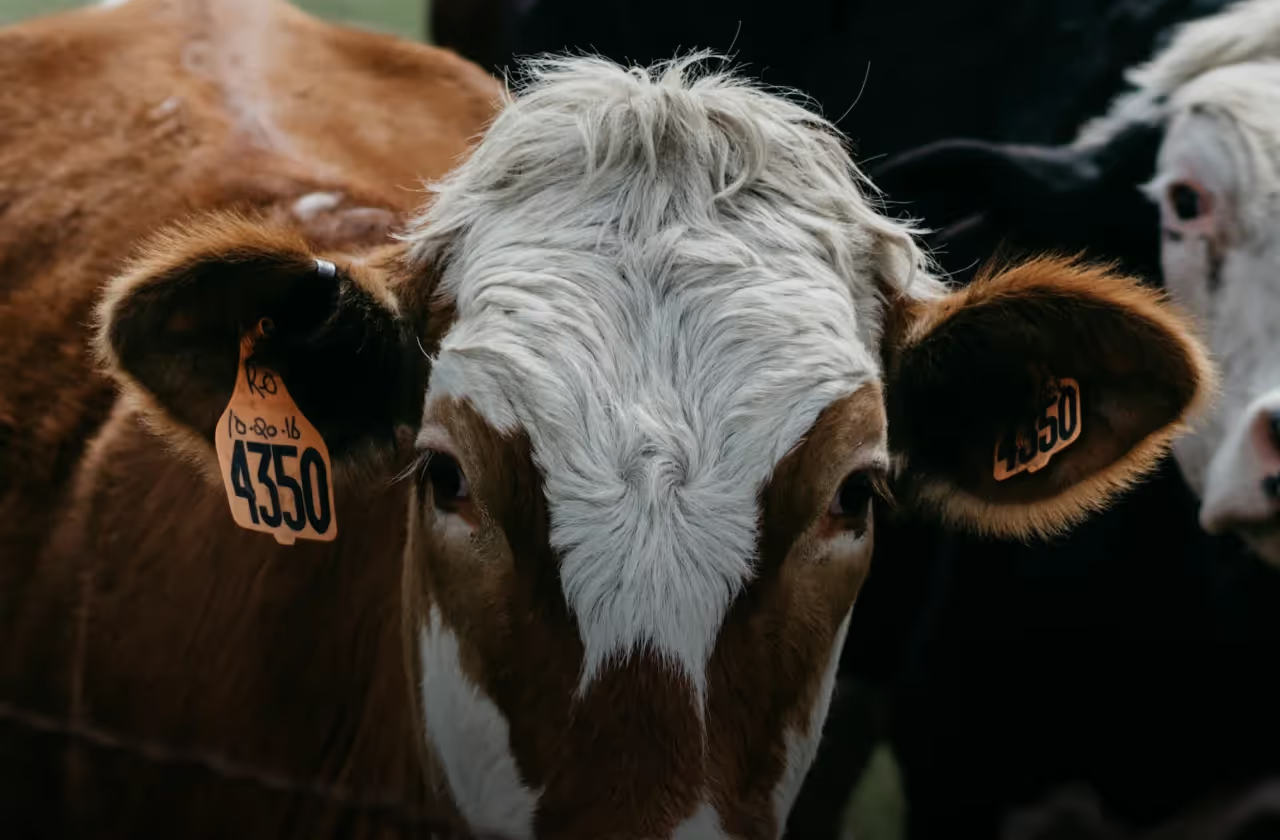The science behind Animal-Friendly & Sustainable Farming with Collie













Modern farming faces enormous challenges: ensuring animal welfare, reducing emissions, and protecting biodiversity - all while maintaining a profitable farm. Below you will find research-backed insights into how Collie addresses these challenges using virtual fencing and virtual herding technology.

Animal Welfare
Collie’s technology not only minimizes stress but also enhances the overall health and well-being of cows.

Stress-Free Herding
Cows are guided using sound and vibration cues, eliminating the stress associated with traditional herding methods.
Verdon, M., Langworthy, A., & Rawnsley, R. (2021). Virtual fencing technology to intensively graze lactating dairy cattle II: Effects on cow welfare and behavior.
MDPI (2022) The effect of virtual fencing on cattle behavior and welfare.

Healthier Cows
Grazing outdoors is natural for cows and improves overall health by lowering the risk of common issues found in housed systems:
- Reduced lameness and hoof pathologies.
- Fewer cases of mastitis and uterine diseases.
- Improved immune response due to a cleaner, natural environment.
- Fewer aggressive interactions due to increased space and opportunities for natural behaviors like grazing and lying.
Arnott, G., Ferris, C. P., & O’Connell, N. E. (2017). Pasture access affects health and welfare of dairy cows: A review. Animal, 11(5), 896-909.

Mother-Calf Bond
Collie enables farmers to allow calves to remain with their mothers longer, fostering natural bonding and reducing stress for both mother and calf.

Adaptation and Learning Curve
Cows quickly adapt to virtual fencing, learning to avoid exclusion zones in as little as 3 days.
Verdon, M., & Rawnsley, R. (2020). The effects of dairy heifer age at training on rate of learning and retention of learning in a virtual fencing feed attractant trial.

Climate Impact

Cutting Emissions
Collie enables cows to graze outdoors more frequently, significantly reducing nitrogen and carbon emissions—a critical step in mitigating climate change.

Reduced Ammonia Emissions
Outdoor grazing allows manure to disperse naturally across fields, lowering ammonia emissions by an average of 3.3 grams per extra grazing hour per cow per year. On typical farms, the increased grazing time made possible by Collie can cut ammonia emissions by up to 49.6% - directly reducing nitrogen deposition in surrounding nature.
APA (7e editie)Hoving, I., Holshof, G. J., Migchels, G., Van der Gaag, M. A., & Plomp, M. (2014). Reductie ammoniakemissie bij maximalisatie weidegang op biologische melkveebedrijven (Livestock Research Rapport 792). Wageningen UR Livestock Research.

Lower Carbon Emissions
Outdoor grazing reduces the reliance on synthetic fertilizers, heavy machinery, and feed transport. By minimizing fossil fuel use for machinery, Collie significantly cuts carbon dioxide emissions.
Teague, W. R., Apfelbaum, S., Lal, R., Kreuter, U. P., Rowntree, J., Davies, C. A., Conser, R., Wilson, J., Wang, T., Wang, F., & Byck, P. (2016). The role of ruminants in reducing agriculture’s carbon footprint in North America.Journal of Soil and Water Conservation, 71(2), 156-164.

Increased Biodiversity
Collie assists farmers in safeguarding biodiversity and preserving sensitive ecosystems through:

Wildlife Protection
Farmers can use Collie’s app to mark and avoid ecologically sensitive areas, such as bird nests and waterways thereby minimizing disturbances to wildlife habitats.

Rotational Grazing
By incentivizing rotational grazing, Collie promotes even pasture usage, which supports diverse ecosystems of plants, insects, and wildlife. This practice enhances soil health and biodiversity.
Mosier, S., Apfelbaum, S., Byck, P., Teague, W. R., Thompson, R., & Cotrufo, M. F. (2021). Adaptive multi-paddock grazing enhances soil carbon and nitrogen stocks and stabilization.Frontiers in Sustainable Food Systems, 4, 534187.

Soil Health
Implementing regenerative grazing practices with Collie returns nutrients and carbon to the soil, improving its structure and moisture retention, which benefits overall ecosystem function.
Mosier, S., Apfelbaum, S., Byck, P., Teague, W. R., Thompson, R., & Cotrufo, M. F. (2021). Adaptive multi-paddock grazing enhances soil carbon and nitrogen stocks and stabilization.Frontiers in Sustainable Food Systems, 4, 534187.












FAQ
Maybe we have already answered it.
Virtual Fencing: Training begins by drawing a virtual fence in the app, right in front of a physical electric fence. The physical electric fence is then moved further away on a daily basis to teach cows through trial-and-error and over time that hearing a sound means they are approaching the boundary. Over time, cows learn to associate the sound with the boundary, gradually replacing visual cue.
Virtual Herding: Training involves pairing the vibration signal with traditional herding. As the cows learn that the vibration means “move forward,” physical herding is gradually reduced until it is no longer needed.
At present, Collie is exclusively available for dairy cows in the Netherlands and Belgium. To receive updates on availability in your country or for your type of farming, please sign up here.
No, a physical outer fence is still required for safety reasons. If an animal moves into a neighboring field, it’s not a major issue, but it becomes a serious concern if the animal strays onto a public road. A physical fence acts as a backup to ensure public and animal safety.
Grazing cows traditionally requires significant time and effort, often taking up to three hours a day to move herds and adjust fences. As a result, many farmers keep their cows indoors or adopt inefficient grazing practices. Virtual fencing and herding simplify the grazing process by allowing you to manage grazing zones and herd movement directly from your mobile phone. This saves time, reduces labor costs, and improves efficiency while enhancing animal welfare, boosting biodiversity, and lowering emissions.

